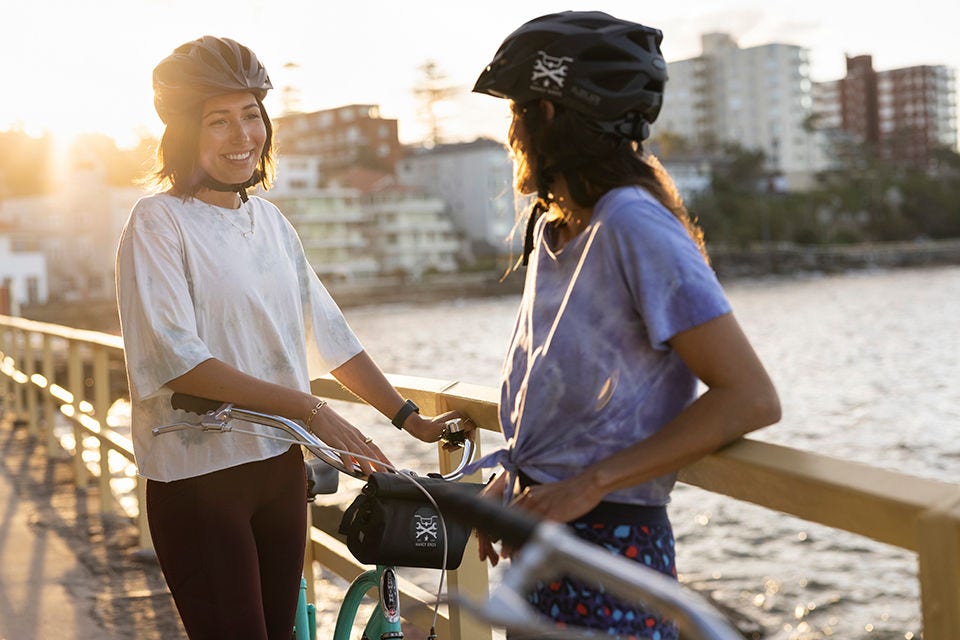
Manly Surf School, Freshwater Beach (Image credit: Destination NSW)
Classes are done and you’ve got some time on your hands!
Of course, it is important to rest over your academic break so you are refreshed when classes start again. However, your academic breaks are also an excellent time to work towards goals in other parts of your life that may not get as much attention when you have looming study deadlines.
Here are our top seven ways to be productive over your academic break.
1. Develop or refresh your resume
Set yourself apart from the competition by updating your resume with the unique experiences you have had outside of study and paid work.
While academic and professional experiences are important to include on a resume, you can also impress prospective employers with relevant extracurricular activities and volunteering roles.
Volunteering is not just a great addition to your resume, it’s also a way to meet new people. Plus, you’ll improve your communication and work skills, and even improve your chances of paid employment. You’ll get the ‘warm fuzzy’ feeling that comes with doing good and helping people in need. There are roles in person and online available, so you can volunteer in Australia from anywhere in the world!
You could also use the time to enrol in a short course to learn something new, upskill or prepare yourself for work in the Australian job market.
2. ‘Spring’ clean
Pop on a high-energy housework music playlist, get out the duster and mop, and use the free time to give your living space a thorough clean. You’ll be amazed at how clear-headed you feel afterwards.
You could also take some time to sort through your clothes, books and household items. Donate anything you no longer need to charity. Clean your study space, organise your desktop and reply to those emails you never got around to during the semester.
Now – doesn’t that feel better?
3. Get a job
Many international students take up part-time and casual work while studying in Australia. It’s a good way to meet new people, earn some money and experience the local community.
Working during your time off is a great way to build your savings without impacting your studies. International students in Australia commonly find work in the retail, hospitality, farming, administration and tutoring industries during break times.
If taking on more work during study breaks is something you’re interested in, make sure you understand your working rights and expected pay rates, as well as visa rules. Visit the Study Australia Employability Hub for more.
4. Take a trip
You didn’t travel all this way to stay in one place!
Australia is a huge and diverse country, with so many exciting places and experiences just waiting for you to discover. So why not spend some of your time off exploring?
From the gorgeous east coast beaches to the sprawling red centre to the pink lakes of the west – and everything in between – there’s so much of Australia to discover. Here’s some background reading on how to choose your own Australian travel experience.
5. Build your professional network
The world is now incredibly reliant on technology, and networking is no exception. Spend some of your free time updating your social media accounts (including, but not limited to, LinkedIn), attending online events and webinars, and joining interesting and relevant online groups and communities.
These activities can be time-consuming so your academic breaks might be the perfect time to better develop your professional network. You never know when a new connection might have an opportunity for you!
6. Set yourself a healthy challenge
What gets measured gets improved. A great way to ensure you meet your goals is to set yourself a challenge to work towards in a specific timeframe.
For example, use the pedometer or a health app on your smartphone, or purchase a smart watch to track your daily steps. Medical professionals recommend adults take at least 10,000 steps per day, which is a terrific place to start. Create a playlist of podcasts you’d like to listen to while you walk so you can learn something new. Doubly productive!
Perhaps you’d like to read more non-course related books. Use the free app Goodreads to set an annual reading target, track your progress and take note of books you’d like to read in the future.
7. Take an English course
Many international students choose to live and study in Australia to improve their English skills in an immersive environment. There are many types of English courses, and it’s easy to find some that are relevant to your current skill level and goals.
They can cover basic proficiency, exam preparation or even training that enables you to teach English in your home country. Taking an English course will improve your performance in your studies as well as your communication with others in your everyday life.
Most importantly...
Make sure you make time for fun and exploring new places in this beautiful country!


